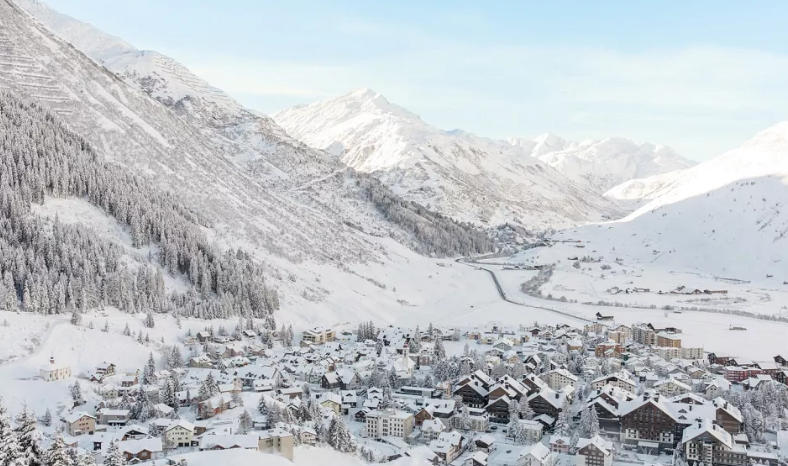The quiet alpine village of Andermatt is experiencing a surge in property demand from American buyers, as growing political tensions and looming tariff changes in the United States drive investors abroad.
Real estate transactions in the Andermatt Swiss Alps project — a major development of hotels, apartments, restaurants, and a golf course — have spiked over the past 18 months. Russell Collins, chief commercial officer at Andermatt Swiss Alps AG, revealed that inquiries from U.S. buyers tripled in early 2025 compared to the same period last year, with completed sales already double last year’s total.
“If we consider that in 2023 we had no US-based buyers in Andermatt, the increase is significant,” Collins said.
Unlike most Swiss properties that are restricted under federal laws controlling foreign ownership, the Andermatt project is largely exempt from such rules, allowing buyers to purchase freely without permits or holding requirements. This rare level of accessibility has made the development a magnet for Americans seeking stable, long-term investments.
Andermatt’s appeal extends beyond regulatory flexibility. The village, now aligned with Vail Resorts — a familiar brand to American skiers — has been developed into a year-round destination offering skiing, golf, hiking, and cycling. Collins pointed to Switzerland’s political neutrality, robust legal protections, and high quality of life as further draws for U.S. buyers.
Experts believe the trend also reflects broader investment strategies. Professor António Alvarenga from Nova School of Business and Economics noted that diversifying into franc and euro-denominated assets offers Americans a buffer against domestic volatility. Meanwhile, flexible remote work arrangements have encouraged high-net-worth individuals to seek residences in scenic, infrastructure-rich European locations.
Other Swiss regions like Verbier, Zermatt, Gstaad, and Lugano could also see rising U.S. interest, according to property analysts.
However, financial advisors caution that relocating overseas does not shield Americans from U.S. tax obligations. Stewart Koesten, chairman at Aspyre Wealth Partners, stressed that Americans are taxed on global income, and double taxation issues, estate taxes, and property management costs should be carefully evaluated.
“While moving to Switzerland can help soften the blow of U.S. market uncertainties, it’s not a complete escape from economic or tax realities,” said Andrew Fortune, a U.S. realtor.
As global economic uncertainty persists, investing in Swiss real estate may offer Americans some protection — but experts urge careful planning before making the leap.


